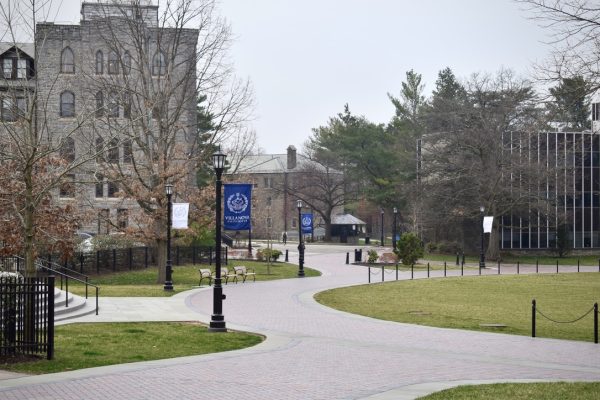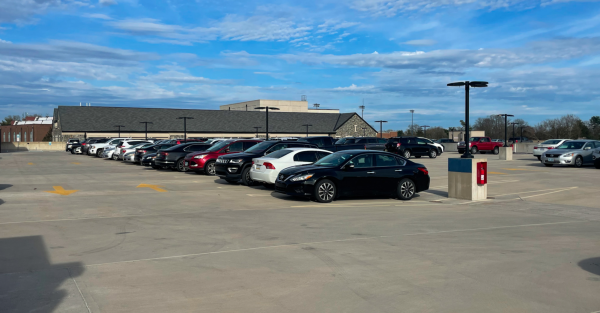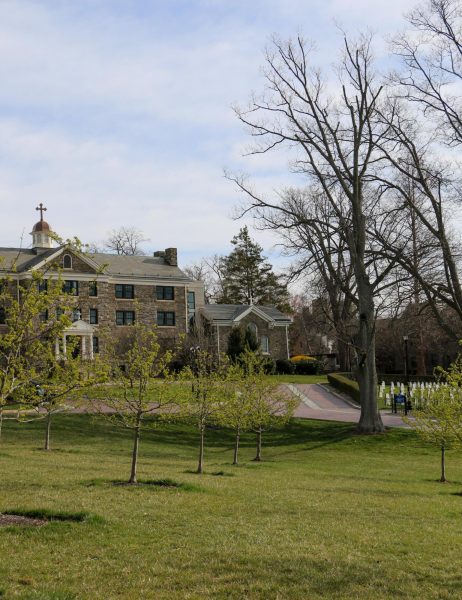Spike in COVID-19 Cases Threatens Future on Campus
February 3, 2021
From anti-maskers to college partygoers, a large number of Americans, no matter how young or old, have started to care less about COVID-19. This is apparent with the spike in cases around the country during the holiday season. COVID-19 peaked in the United States on Jan. 8, with about 300,000 new cases as per the New York Times. Our own campus saw a similar trend with its biggest coronavirus spike happening during Halloween weekend, causing many on-campus activities to shift online for the remaining weeks of the semester. With this new COVID-19 menace, what threat can it pose to campus life?
According to the University’s COVID-19 dashboard, things already seem particularly grim. As of Feb. 2, there are 244 active cases on campus, holding 34% of the on-campus quarantine capacity. Comparably, the first case of an infected student last semester did not appear until Aug. 25, eight days after the semester began, with only one case for that day. The school did not hit 130 total cases until early October, an entire month and a half into the term. To me, this is unacceptable and shows the complete disregard and lax nature many people share toward COVID-19 at this point in time. Either stricter regulations by staff need to be implemented, or the student body needs to wake up and not take the privilege of staying on campus for granted.
A big factor to blame for this could be the University’s procedure for pre-arrival testing. Putting the responsibility on students to quarantine before returning to campus is the wrong way of going about COVID-19, especially because many are unknowingly asymptomatic when infected.
The pre-arrival system goes as follows: on Jan. 6, an entire two and a half weeks before the semester began, students were instructed to order the testing kits, self-test and send it back with the return label contained in the box, all before Jan. 15. As many have probably thought, there are a few things wrong with this.
For one, the responsibility of self-testing can be futile, since most people probably do not know if they correctly administered the test. It would have been better for students to get tested by professionals on campus, or to have required official hospital testing and documentation before reaching the school. Secondly, at a time where COVID-19 is at an all-time high and the general attitude towards the virus is not as serious, it is irresponsible to just ask people to quarantine for two weeks. Many people did not follow this, and it could be a reason why 136 out of the 412 (about 33%) administered tests so far have been positive. Another quick fix would be to mandate a quarantine on campus for students before classes start, with multiple testing opportunities, to completely ensure no one has COVID-19 to spread around to others.
Despite everything in this regard, campus life seems to be running normally. People are reaping the benefits of knowing the class format before registering. From my experience, in-person classes are properly socially distanced and seemingly clean. The only problem I see is in dining areas, as many people do not follow the University’s policies and social distancing guidelines. People take eating as an excuse to go against the school’s efforts to create a safe environment. I get that it is uncomfortable to eat with a mask on, but students should at least sit in the designated areas instead of moving seats or sitting in places not intended for eating. This would go a long way to lessen the rising number of cases.
One good thing to come from this is that the University has identified the issue and notified students on the severity of this sharp increase in cases. I agree that the current case spike is unsustainable; hopefully the email serves as a way to get students to check the dashboard regularly, along with hopefully practicing the safety policies in better ways. However, the brevity of the message does say something about the communication with staff and the student body. More information should be provided, such as if the COVID-19 spike is happening in designated areas, how many active cases would we need to have until the school shuts down, or any restrictions that could be implemented on campus life as a result. The latter two would be the most important, as it would probably allow the student body to fully grasp the severity of the situation we face right now.
All in all, COVID-19 is more prominent right now on campus than ever compared to any single day last semester. If the virus remains on the trajectory it is going as of the first week, we will not remain on campus for the entire semester. Hopefully in the future, the staff responsible for handling pre-arrival testing will employ better and more controllable measures to contain the virus among students. But for now, the best thing for us to do is to more closely follow guidelines the University has set for us. It is in our hands whether or not we stay on campus, so act responsibly. Take COVID-19 seriously, or our desire to have a normal college experience will keep getting further away from ideal.






